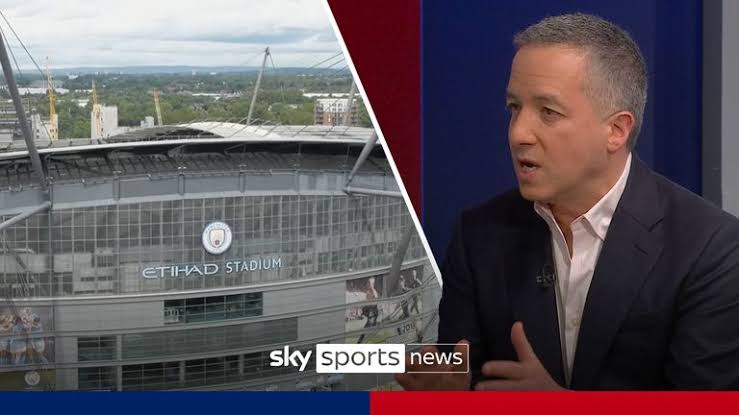Man City claim legal victory against Premier League over APT financial rules

Manchester City has achieved a significant legal victory over the Premier League in an ongoing dispute concerning financial regulations that govern the operations of clubs in English football. This dispute involves a case where an independent panel has determined that the Premier League’s Associated Party Transaction (APT) rules are void and unenforceable. This ruling is viewed as important, with potential wide-reaching consequences, and it could pave the way for further legal action. However, the Premier League insists that whether this ruling has any lasting impact depends on the tribunal’s judgment regarding the new set of rules that have since been put in place. The situation remains complex, with multiple facets still to be resolved.
To understand the implications of this ruling, it’s necessary to dive deeper into what the Associated Party Transaction rules are, why they were introduced, and what this legal victory means for Manchester City and the wider Premier League. The APT rules were introduced in the first place to ensure transparency and fairness in financial dealings between clubs and associated parties, such as companies and individuals with a significant financial stake or interest in the club. The idea was to ensure that commercial transactions were fair and reflective of market value, with the intention of preventing clubs from inflating their revenue through artificial or non-market-based deals.
The Premier League’s regulations, as they pertain to Associated Party Transactions, require that any deals between a club and any of its associated parties – such as its players, managers, or senior officials – must be disclosed and reviewed by the Premier League before they are executed. This review ensures that the transactions reflect fair market value and are not being used to circumvent financial fairness rules, such as the Profit and Sustainability regulations (PSR) that govern how much a club can spend. Essentially, the Premier League sought to prevent situations where club owners could funnel excessive funds into their clubs through related companies, distorting the competitive balance of the league.
In the case of Manchester City, the APT rules have been particularly significant due to the club’s ownership. Manchester City is owned by Sheikh Mansour, the UAE vice president, through the Abu Dhabi United Group. This ownership structure has led to concerns from some quarters about the potential for Manchester City to receive inflated sponsorship deals from companies that are connected to the UAE government or other state-linked entities. For example, Etihad Airways, which is owned by the government of Abu Dhabi, has been one of the club’s main sponsors. The Premier League’s APT rules sought to scrutinize such deals to ensure that they were not artificially inflated, a practice that could lead to Manchester City exceeding financial regulations such as the PSR.
The controversy surrounding these rules escalated when Manchester City attempted to negotiate new, more lucrative deals with Etihad Airways and First Abu Dhabi Bank, both of which are tied to the UAE government. The Premier League, however, blocked these deals on the grounds that they did not meet the requirements of the APT rules, sparking a legal challenge from Manchester City. The club argued that the rules were unfair and that they were being singled out due to their ownership structure. In response to the legal challenge, an independent panel was appointed to rule on the validity of the APT regulations.
This independent panel’s decision, issued in February 2025, found that the Premier League’s previous APT rules were unenforceable. The ruling stated that the three specific parts of the APT rules that had been found to be unlawful in earlier proceedings could not be separated from the broader set of rules, rendering the entire framework unenforceable. This ruling was a blow to the Premier League’s regulatory authority and created a significant legal precedent, potentially opening the door for further challenges to financial regulations within the league. Manchester City celebrated the decision as a major legal victory, though the Premier League sought to downplay the impact of the ruling.
In a statement following the ruling, the Premier League emphasized that the decision did not affect the current rules. The league clarified that, in November 2024, the clubs had voted in a new set of APT rules, which were now in effect. These new rules were drafted to address the concerns raised by the tribunal and sought to resolve the issues identified with the previous regulations. The Premier League contended that the ruling did not invalidate the new rules and that they would continue to govern transactions involving associated parties. Moreover, the Premier League insisted that the tribunal’s decision did not address the validity of the new rules, and the outcome of this legal battle would ultimately depend on the findings of a separate challenge that Manchester City had filed against the new rules.
This challenge is still ongoing, and the outcome could have even greater implications for the Premier League and for Manchester City. The new APT rules, which were introduced in November 2024, are designed to ensure that deals between clubs and associated parties are not artificially inflated and are in line with market values. One of the key provisions of these new rules is that shareholder loans must be considered when assessing a club’s financial sustainability and profitability. This is crucial because, under the PSR, clubs are allowed to lose a certain amount of money over a three-year period, but excessive losses could result in sanctions. By factoring shareholder loans into financial assessments, the Premier League aims to ensure that clubs cannot manipulate their accounts to bypass these rules.
Another important feature of the new rules is that clubs will have earlier access to a database containing comparable sponsorship values. This will allow clubs to assess whether their deals with associated parties are in line with what other clubs are negotiating. This transparency is intended to prevent clubs from inflating the value of their sponsorship agreements to circumvent financial controls. While the Premier League has emphasized that these new rules are valid and enforceable, Manchester City is challenging them on the grounds that they unfairly restrict the club’s ability to generate revenue from legitimate sponsorship deals.
The legal battle between Manchester City and the Premier League over these financial rules is not just about one set of regulations. It is part of a broader struggle over how football’s financial landscape is governed, particularly as the wealth of the Premier League clubs continues to grow. The introduction of the APT rules and the ongoing challenges to them are part of a wider effort to ensure financial fairness across the league. However, the legal disputes also highlight the tensions between wealthier clubs, like Manchester City, and the Premier League’s attempt to maintain a level playing field.
The significance of the tribunal’s ruling in February 2025 extends beyond just Manchester City’s case. It raises fundamental questions about the ability of the Premier League to regulate financial matters effectively and whether its rules are fair and enforceable. The ruling also has broader implications for other clubs in the league, as it could lead to further legal challenges against the Premier League’s financial regulations. If Manchester City’s legal challenge against the new rules is successful, it could set a precedent that other clubs could follow, potentially weakening the Premier League’s regulatory framework.
In the context of the broader financial landscape, Manchester City’s legal battles over the APT rules are just one part of the story. The club is also facing scrutiny over more than 100 alleged breaches of financial regulations dating back to 2009. These alleged breaches, which are part of a much larger investigation, could have significant consequences for the club if they are proven to be true. A verdict on these charges is expected in the near future, and it could have far-reaching effects on both Manchester City and the Premier League as a whole. The outcome of this case will likely determine how the Premier League approaches financial regulation going forward.
The legal challenges faced by Manchester City are not unique, as other clubs in the Premier League have faced similar scrutiny over their financial practices. However, Manchester City’s case is particularly high-profile due to the club’s wealth and its ownership structure. The legal battles and ongoing investigations are likely to continue to shape the future of financial regulation in the Premier League, with potential consequences for clubs across the league.
In the short term, Manchester City is focused on the outcome of its legal challenges. The club hopes that the tribunal will rule in its favor once again, arguing that the Premier League’s new APT rules, introduced in November 2024, should never have been implemented in the first place. The club believes that the new rules unfairly restrict its ability to operate commercially and to generate revenue through legitimate sponsorship deals. The legal process will continue, and the final verdict could have significant implications for both Manchester City and the Premier League as a whole.
As this legal battle unfolds, it remains to be seen how the Premier League will respond. The league has expressed confidence in the validity of its new rules and is pushing for an expedited resolution of the matter. However, the ongoing legal challenges indicate that the relationship between Manchester City and the Premier League remains tense, and it is likely that further disputes will arise as the league continues to navigate the complex financial landscape of modern football.
In the meantime, Manchester City remains a powerful force in English football, with a squad of world-class players and a significant financial backing. The club’s legal victories and ongoing challenges have placed it at the center of a larger debate about financial fairness in the Premier League. The outcome of these legal battles will not only affect Manchester City but could also set the tone for how the Premier League handles financial regulation in the future.















